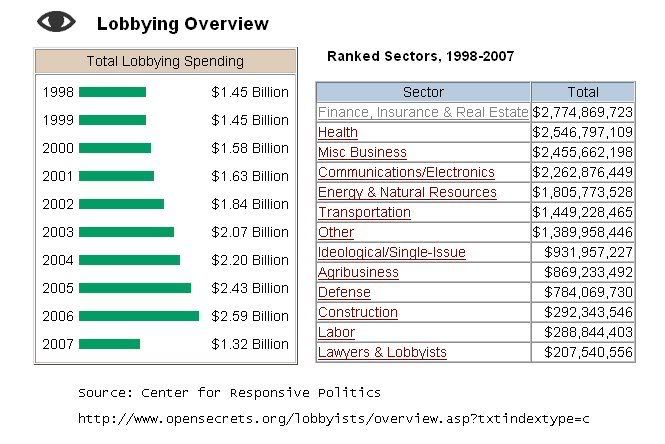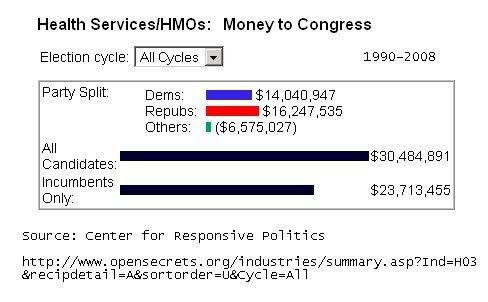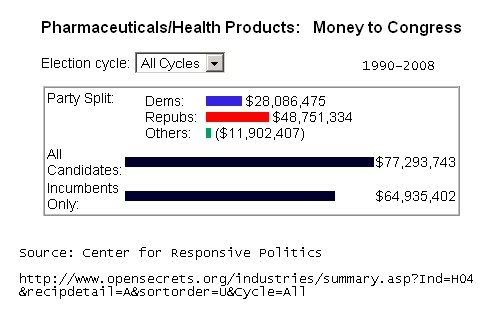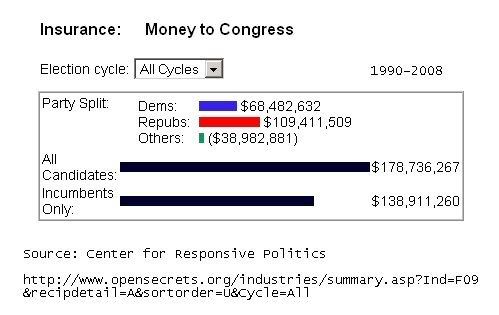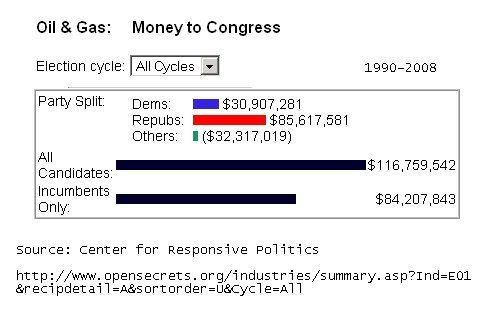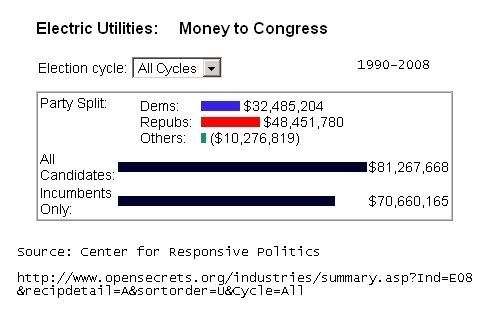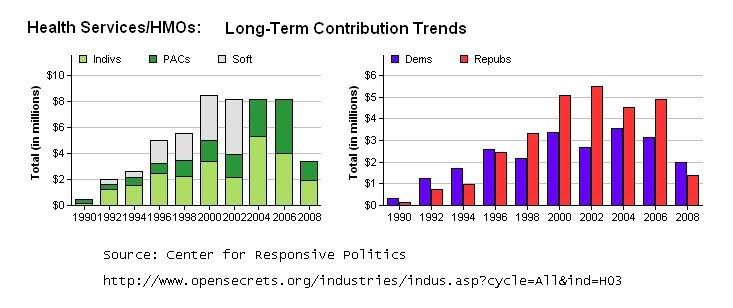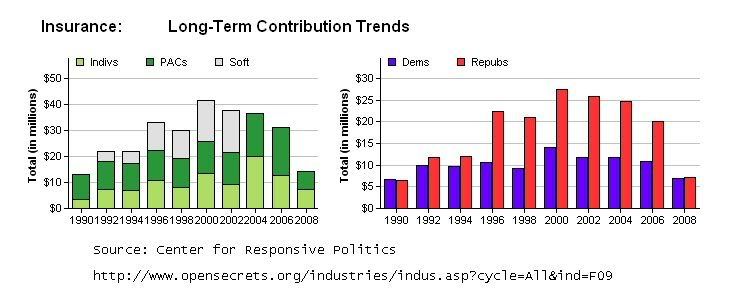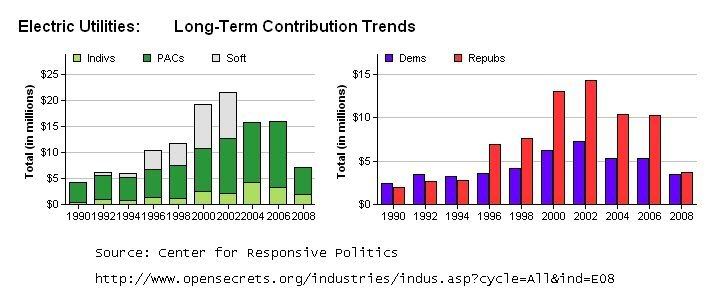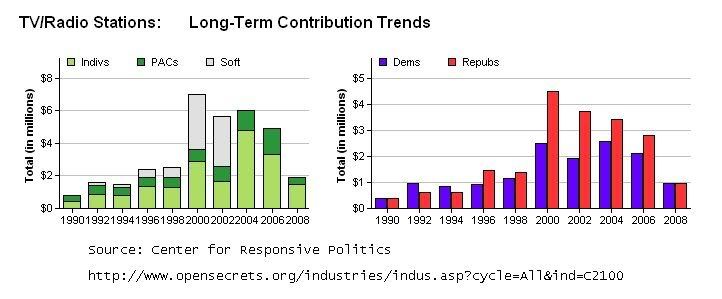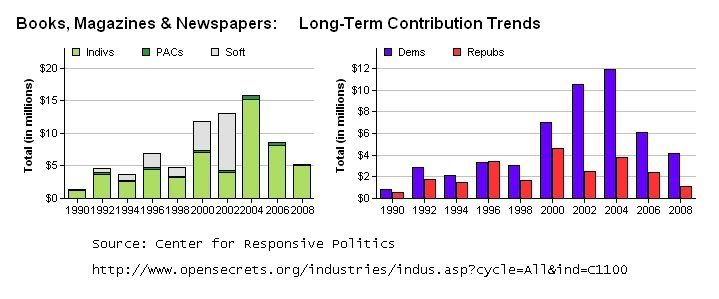John Edwards has gotten many laughs with the cutting line about Industry Lobbyists: “If you give them a seat at the Table — they’ll eat all the food!”
Lobbyists are the “Bogey Man” that’s everyone loves to hate — but are they really that big of a Deal?
It’s just Business right? Corporations are People too. They deserve to have their Voices heard in DC, too, Right? I thought I read that somewhere in the Constitution, Didn’t I? …. Hmmmm ….
There he goes again! Talking about those big, bad Drug Companies, Insurance Companies, and Oil Companies and their Lobbyists! Woooh Scarey!
John Edwards – Just Say No
http://www.youtube.c…
The reason we don’t have Universal Health Care today, is because of Drug Companies, Insurance Companies and their Lobbyists in Washington. They stand between you and the Health Care that you need.
We have to take this System on. We have to Change it! We have to be willing to be honest about it. I don’t believe you can change that system and bring about the change we need on Health Care, on Energy, and on everything else, unless you’re willing to say ‘It’s broken — It doesn’t work!’ If you defend it, and you say, ‘Oh well it’s fine, we’ll just take money from the Lobbyists, it’s no big deal — and then we’ll work it all out.’ — that doesn’t work! You have to say NO to these people.
You have to say as President, I represent the American People! I don’t represent Drug Companies, Insurance Companies and their Lobbyists in Washington! I don’t represent Oil Companies — I represent America! Because that’s the ONLY way we’re going to get the Change that we need in this Country. …
How dare Edwards have the audacity to want to actually “represent the American People, as President”?
Doesn’t he know, that’s not how our System of Government Works anymore?
Exactly!
Edwards does know, and he’s Just Saying No. No More!
NO More “Business as Usual”
NO More CEO’s “Buying a Seat at the Table” in Congress
Lobbying Overview – Total Spending, by Industry Sector:
NO More trading our Corporate Representatives for their, and vice versa:
Just how much of those Lobbyists BILLIONS finds its way into Congress?
HMOs – $30 Million
Drug Companies – $77 Million
Insurance Companies – $179 Million
Oil & Gas Companies – $117 Million
Electric Utilities – $81 Million
No More taking over the Election Process, by helping those Representatives pay their Campaign Bills:
If previous Campaign Donation Trends are any guide, get ready for another year of “Madison Avenue” Mud-Slinging!
(the 2008 “donations” are just getting started)
HMOs
Drug Companies
Insurance Companies
Oil & Gas Companies
Electric Utilities
No More taking over the Legislation Process, by reminding those Representatives WHO paid their Campaign Bills:
Here are the Top 20 Members of Congress raking it in from each Industry sector:
HMOs
Drug Companies
Insurance Companies
Oil & Gas Companies
Electric Utilities
John Edwards is Ready to give them Hell!
He knows how they operate. He’s been beating Corporate Interests for 20 years, in the court room arena.
One things for sure, John Edwards does not back down from a Fight!
John Edwards – “Give ‘Em Hell”
http://www.youtube.c…
Reform Groups Announce Six Benchmarks for Lobbying Reform
Jan 23, 2006
1. Break the nexus between lobbyists, money and lawmakers.
Cap contributions from lobbyists and lobbying firm PACs to federal candidates at $200 per election and to national parties and leadership PACs at $500 per election cycle.
Prohibit lobbyists and lobbying firms from soliciting, arranging or delivering contributions and from serving as officials on candidate campaign committees and leadership PACs.
2. Prevent private interests from financing trips and from subsidizing travel for members of Congress and staff, and executive branch officials and federal judges.
3. Ban gifts to members of Congress and staff.
4. Oversee and enforce ethics rules and lobbying laws through an independent congressional Office of Public Integrity and increase penalties for violations.
5. Slow the revolving door.
6. Place sunshine on lobbying activities and financial disclosure reports.
It will take more than just rhetoric.
John Edwards will take the power out of the hands of Lobbyists. He will:
— Take on the Lobbyists’ Power with a Constitutional Line-Item Veto:
— Prohibit Lobbyists from Giving or Raising Campaign Cash:
— Today, lobbyists approach politicians with campaign checks in one hand and wish lists in the other. Federally registered lobbyists gave over $23 million in the 2006 campaign. Edwards has never taken a dime from federal lobbyists or PACs. He will sever the connection between money and lobbyist influence by:
* Ending lobbyist campaign contributions:
— Lobbyists should be able to make their cases on the merits, not by influencing politicians with donations. Edwards will prohibit all federal candidates from accepting campaign contributions from federal lobbyists.
* Stopping lobbyists from bundling:
— Lobbyists solicit donations from others and direct them towards candidates to maximize their impact, a practice known as bundling. Edwards has never allowed any lobbyists to bundle donations for him. As president he will ban federal lobbyists from bundling for federal candidates.
— Close the Lobbyist Revolving Door:
* Banning top government officials from becoming lobbyists:
* Banning lobbyists from taking top government jobs
— Expose Lobbyist Contacts to Sunlight
— Prohibit Executive Branch Employees from Accepting Corporate Gifts
———
John Edwards — The Plan to Build One America
End the Unique Power of Lobbyists
— Prohibit lobbyists from donating to campaigns or fundraising for them.
— Fight lobbyists’ bread and butter – earmarked pork-barrel spending – with a constitutional version of the line-item veto.
— Close the revolving door between Capitol Hill and K Street by banning former top officials from lobbying their colleagues and lobbyists from taking executive branch positions related to their former clients.
— Expand the congressional ban on lobbyist gifts and travel to executive branch officials.
It’s really not a Laughing Matter! The Legislation that the Lobbyists help write and pressure through Congress IS really criminal, sometimes!
IF the Focus of this Country doesn’t change soon,
from how Wall Street is doing
to how “your Street” is doing —
well America should just quit pretending to represent the People
and Actually start inviting CEO’s to Congress for Planning Sessions,
since it’s their Opinions that are the ones that matter anyways!
Oh wait, they already do —
The Cheney Energy Plan,
The Lieberman-Warner Carbon Give Away,
FCC Telecommunications Consolidation Plan,
… the list goes on.
Big Business gets the Concessions,
We the People get the Bills!
Edwards is right – It’s Time to End this Game!
And NOT when “it’s Convenient” for Politicians to fix it
(huh, when’s that ???) — But NOW!
It seems some Senators IN OFFICE NOW, could be reforming this System of Corporate Favoritism, NOW — not “Later”?
SO Why Aren’t they? …. Hmmm?
————
Post Script:
If John Edwards has a valid point about Lobbyists, why is the Media all too ready to just chalk it up to “Edwards has become Angry”?
Well, Could it have anything to do with the fact, that the Corporate Media is “trying to get their Seat at the Congressional Table” too?
TV-Radio Stations
Books, Magazines, Newspapers
It’s the American People WHO need to get Angry !@!
And Support Candidates, like John Edwards, who are willing to take on this Broken System — and NOT just go along with it!
No one else will do it for you!
Indeed, they’d rather have you “Relax, Just Go Shopping” …
“Business as Usual” is Good for “some interests”.
The ones that matter most in today’s world, it seems.
[Note: Most Images, click thru to more info!]




